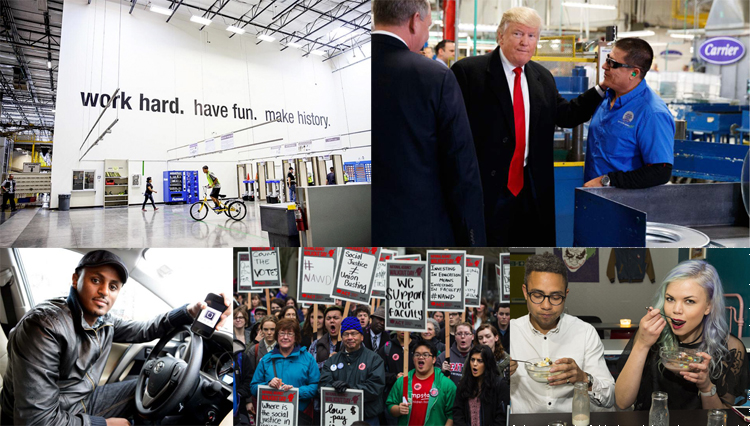|
Description
The new economy is, in one sense, a very old concern of sociology. Since the discipline's 19th-c. origins, sociologists have asked how changes in material production and economic relations alter the ways that people live, work, understand their lives, and relate to one another. However, current interests in the new economy center upon something new: a flexible, "just in time" mode of industry and consumerism made possible by information technologies and related organizational innovations. The logic of this new economy, as well as its consequences for society, are a main focus of this course. In 2017, public concerns about the new economy — What is becoming of "good jobs"? Who is empowered by changing technologies? What room does work leave for "having a life"? — have reached a boiling point in modern society. Arguably these concerns have something to do with the election of President Donald Trump and the hope many Americans place in his promises. In this way, how people think about the new economy, separate from its objective reality, is itself a context for economic change, as it motivates acceptance, backlash, and reform via individual response and institutional action. Popular, political, and scholarly theories of the new economy are another key focus of this course.
LEARNING OBJECTIVES 1. To analyze contemporary inequalities in wealth, job quality, career advancement, residential patterns, and consumer lifestyles through the lens of economic restructuring. 2. To explore how the new world of work reveals important changes in capital's pursuit of profits and labor control. 3. To investigate how market cultures frame our social impulses for techno-economic innovation, individual well-being, and human interaction. |

